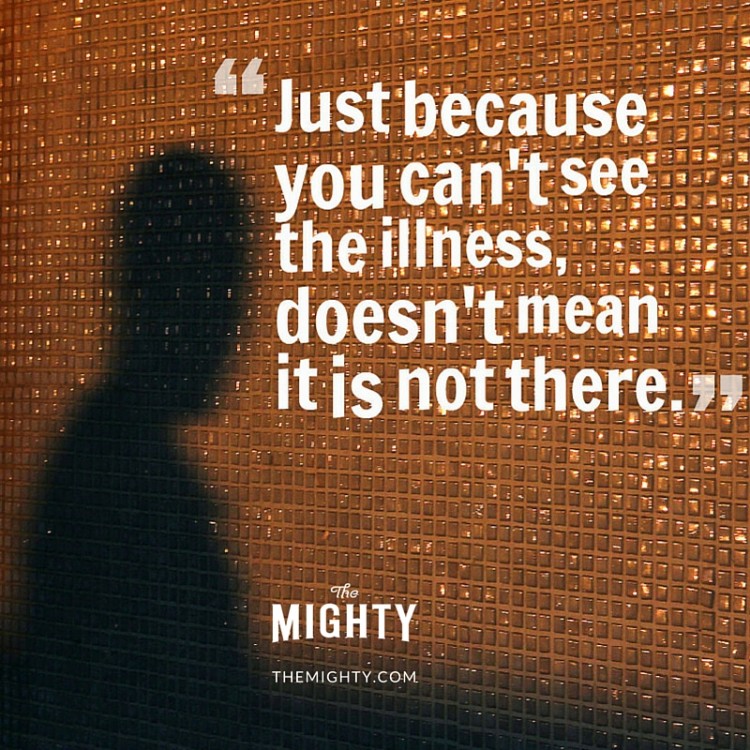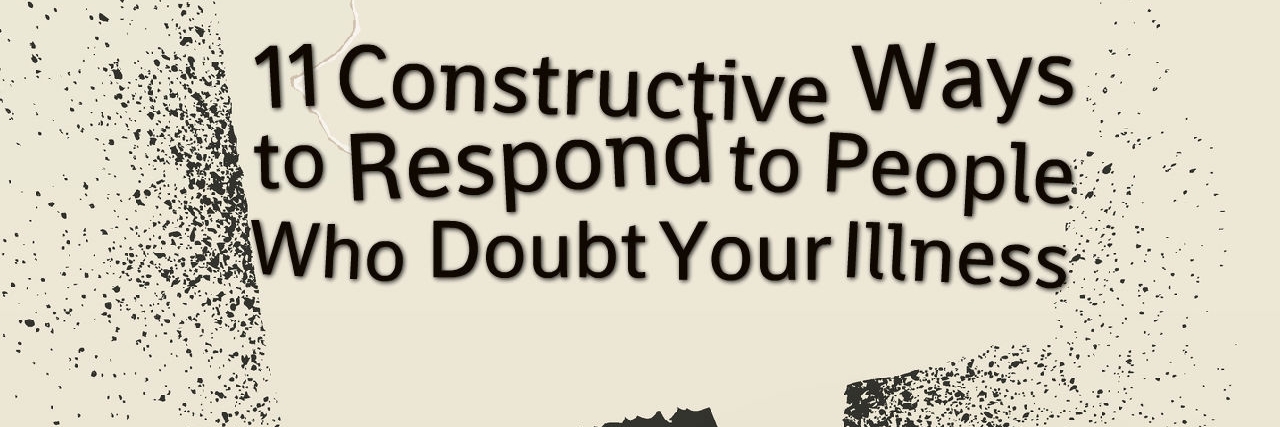If people can’t see the symptoms of another person’s illness, an unfortunately common response is doubt. In these doubters’ minds, if you don’t “look” sick, you must be faking or exaggerating, right? No matter how wrong these assumptions are, it’s still a painful experience to have your condition invalidated.
We asked our Mighty community with chronic illness to share constructive, respectful ways to respond to those who doubt you. These responses aim to help you stand your ground while offering someone an education in how invisible illnesses really work. Hopefully, they’ll walk away with greater understanding and compassion of the realities of chronic illness.
Here’s what our community said:
1. “I’m not surprised you don’t understand my illness. Many invisible illnesses go unnoticed, which is why they’re called invisible. Let me tell you about mine — but I need to sit down first because just standing here is exhausting me.”
2. “I can see how you don’t understand; after all, it’s my body in pain, not yours, and what my body feels is true to me.”
3. “Just because you can’t see the illness, doesn’t mean it is not there.”

4. “If you doubt my illness, perhaps you would care to join me and ask the doctor for yourself. See the X-rays and lab test results for yourself. That way, you can put aside the judgment and look at the facts.”
5. “I explain that sometimes my condition may be more symptomatic or active than other times. I offer education around my condition if the person is interested. If they aren’t then that’s fine, too. Not everyone wants to understand rheumatoid arthritis and I accept that.”
6. “Why do you have an issue with my illness? Is there anything I can clear up for you? I would be happy to provide information about the illness and what it entails for me as an individual. I know chronic illnesses are invisible and can be difficult to understand, so I would be more than willing to provide you with anything that might help you understand.’”
7. “Ya know, I had a hard time believing it myself when I was diagnosed. There’s not a lot of awareness or mass information, so I can understand your disbelief. You can’t always see how a person is feeling, and some days are worse than others. I invite you to my next infusion where you can see for yourself some of the realities my life. The clinic also has some very informative brochures.”
8. “You can never truly understand the experiences of another until you’ve walked a mile in their shoes.”

9. “Google it… you’ll be amazed at what you learn in life.”
10. “I think it’s important to point out that you in no way want to fight the person about the validity of your pain but that you want you and the person and all of society to work towards the alleviation of that pain together. Once you turn it into a team minded idea, most people drop the attitude and get on board.”
11. “I would challenge the person doubting me as to why they need proof, especially when the professionals treating my condition are happy with the evidence. I’d explain that just as it’s perfectly possible to hold two opposing feelings at the same time (be in a state of ambivalence), it’s perfectly possible to be in severe pain but look the picture of health to the average onlooker. I would also encourage them to go educate themselves and then come back to me with questions (kind questions only!). I would safeguard myself by not justifying or elaborating to try and persuade them I’m ill because I shouldn’t have to prove myself to someone who doesn’t care enough to empathize.”
Do you have any suggestions for ways to respond to people who doubt your illness? Share your idea in the comments.

